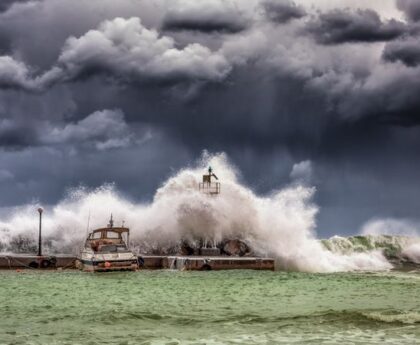‘Red Flag’ Fire Weather Warning Issued for North Bay, East Bay, Santa Cruz
Introduction
In the face of an ongoing battle against wildfires, a ‘Red Flag’ fire weather warning has been issued for the North Bay, East Bay, and Santa Cruz areas. With the West Coast grappling with an unprecedented wave of wildfires, the alert serves as a cautionary measure to protect lives and mitigate further damage. As climate change continues to exacerbate fire conditions, it becomes increasingly evident that urgent action is needed on multiple fronts.
Red Flag Warning and its Significance
A ‘Red Flag’ fire weather warning is a crisis-level alert indicating that weather conditions are extremely conducive to fires and rapid fire spread. Factors such as low humidity, high temperatures, and strong winds create a volatile environment that can quickly escalate devastating fires.
This warning highlights the need for heightened vigilance and preparedness among individuals, communities, and government agencies. It serves as a reminder to exercise caution, implement fire prevention measures, and evacuate if necessary. While the warning itself does not guarantee the occurrence of a fire, it serves as a vital preemptive measure to minimize potential damage and loss of life.
Wildfires and Climate Change
The increased frequency and intensity of wildfires in recent years are closely linked to the effects of climate change. Rising temperatures, prolonged droughts, and changes in precipitation patterns have created drier conditions, turning vast landscapes into tinderboxes waiting to ignite. As a result, wildfires have been occurring with greater frequency, burning through larger areas, and becoming more difficult to control.
It is crucial to recognize the role that human activities have played in exacerbating these fires. Deforestation, urbanization, and the burning of fossil fuels all contribute to the emission of greenhouse gases, which contribute to the warming of the planet. By addressing climate change and adopting sustainable practices, we can help mitigate the severity and frequency of wildfires.
The Need for Preparedness and Action
The ‘Red Flag’ fire weather warning serves as a stark reminder that we must be prepared for the increasing threat of wildfires. Individuals, communities, and governments must prioritize fire prevention, investing in resources such as firefighter training, equipment, and early warning systems. Additionally, policies must be enacted to promote responsible land management, implement stricter regulations on deforestation and development in high-risk areas, and encourage the adoption of renewable energy.
Conclusion
As the ‘Red Flag’ fire weather warning prompts us to reflect on the gravity of the situation, we must confront the urgent need for action. The devastating impacts of wildfires on communities, ecosystems, and the economy demand a multi-faceted approach to prevention and mitigation. By addressing climate change, prioritizing preparedness, and enacting effective policies, we can work towards a future where the threat of wildfires is significantly reduced. The time to act is now, for the sake of our planet and future generations.

<< photo by Griffin Wooldridge >>
The image is for illustrative purposes only and does not depict the actual situation.
You might want to read !
- “Auburn Defense Shines as Tigers Triumph in Close West Coast Battle”
- West Coast Shaken: Analyzing the Implications of the 5.1 Magnitude Ojai Earthquake
- “Tropical Storm Hilary Approaches Southern California: Is the West Coast Prepared for Extreme Weather?”
- Gearing Up for a Hot and Dangerous Weekend: Fire Weather Warning Issued
- Who Is the Mysterious Winner? The Enigma Surrounding the $1.7B Powerball Jackpot in Southern California
- Emerging Challenges: Assessing NYC’s State of Emergency Amidst Intense Rainfall
- “Chasing the Checkered Flag: Highlights from NASCAR All-Star Race 2021”




